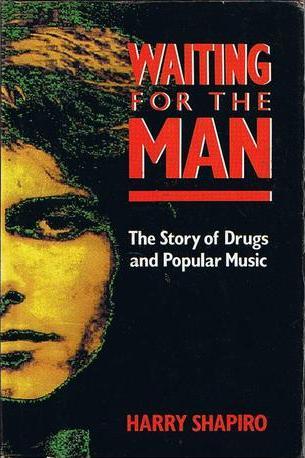

 |

|

The average rating for Waiting for the Man: The Story of Drugs and Popular Music - Harry Shapiro - Hardcover - 1st ... based on 2 reviews is 3 stars.
Review # 1 was written on 2019-04-18 00:00:00 Herbert Walberg Herbert WalbergNot a bad read but the author jumps all over the place and gets a but redundant at times. Of course he also made some rather obvious errors not least of which is calling Janis Joplin, Jimi Hendrix, and Jim Morrison methedrine addicts. I've read quite a lot about all three and this is the first I've ever read this. Janis was a known heroin/alcohol abuser, Hendrix and Morrison may have done speed at times but it certainly wasn't their drug of choice. "The Crystal Ship" is not about methedrine either. It's certainly a drug song, but it's not methedrine Morrison is singing about. It's definitely a hallucinogenic trip the ship is taking the listener on, not a speedy one. Another glaring error was the author's assertion that John Lennon's LSD abuse is the cause of the Beatles break-up. Um, no? It's pretty documented that a combination of Yoko's constant presence in the studio while the group was trying to record coupled with Paul's ballooning ego causing him to nitpick and re-record George and Ringo's parts on the albums created an irrepara the band members. For evidence just check out the "Let it Be" film which still hasn't seen a DVD release because Paul won't sign off on it because it makes him look pretty bad. Another error that's also pretty well documented is the author claiming that the song "Heroin" by the Velvet Underground mimics a methedrine high. I'm not sure what this guy's obsession with methedrine is but for some reason he kept claiming everything in the 60s had to do with speed/methedrine. Shapiro cites a part of the song where the music speeds up and the lyric is "when I'm rushing on my run and I feel just like Jesus' son and I guess I just don't know." Shapiro claims the rush Reed is referring to is the rush of methedrine pills. Once again, NO. The rush Reed is singing about is a term used by heroin addicts to denote the rush through your body of the drug when shot intravenously. The music speeding up is another depiction of the same feeling. And the the lyric about not knowing our caring is the way the user feels once the drug takes effect. It has absolutely nothing to do with speed or methedrine. Reed has been pretty clear on this. Shapiro has a habit of citing a bunch of statistics or facts supported by sources but then he will make some kind of generalization that isn't supported by fact or backed up by any sources. His rave culture chapter is filled with inconsistencies and misleading assertions. It was pretty clear from the outset that his aim was to defend rave parties and the culture in general from claims about drug dealing being specific to raves. He draws comparisons between drug use at discos and at raves finding no real difference. Then he suddenly says that it's a myth that raves are drug supermarkets because "most drug users take their drugs before they arrive." Um, no. I was a member of the Chicago rave scene in the 90s and know from experience that very few people take anything before attending a party. Part of the experience is going on a mission at the party to find whatever they are looking for. Shapiro is wrong and I suspect he knows it because he didn't bother to even try to back it up with any facts. As much fun as raves were, it's a very well established fact that drug dealers could make a killing there. Having attended parties on both the east and west coasts also, it was the same everywhere. Some people would go there just to buy drugs and then leave. Anytime an author starts a sentence with "most of the --- do ----, it's an instant red flag. Sweeping generalizations don't work without some kind of evidence Mr Shapiro. Considering the author's bio says that Shapiro has "been in the drugs field since 1979," it's surprising that he got so many things wrong, particularly about effects of certain drugs. What's weird is that it's not specified what exactly he did in the "drugs field." That's a weird way to even write it. The drugs field?? He's not a doctor or scientist. He's a writer. Based on the way it's written and the fact that there isn't any further information about his experience in the drug field, my guess is he tried drugs for the first time in 1979 and is claiming expertise based on that. Perhaps he and his editors had a good laugh when they wrote the bio. It's just the kind of tongue in cheek, sarcastic British humor we might expect from Shapiro. Unfortunately, I don't think having tried marijuana or cocaine a few times qualifies you as a drug expert. In fact, the argument could be made that it's just the opposite. |
Review # 2 was written on 2017-10-05 00:00:00 William Simmons William SimmonsAll in all, an interesting read. I have to say that there seems to be no narrative flow whatsoever. What I had to do was look up all my favorite artists in the index, then page back to the sections surrounding them--all in order to keep my interest up. The writing also very much required a proofreader. Snoop Dogg's real name is not Tim Dogg--no matter how many times the author keeps ramming into the ground that it is! |
CAN'T FIND WHAT YOU'RE LOOKING FOR? CLICK HERE!!!